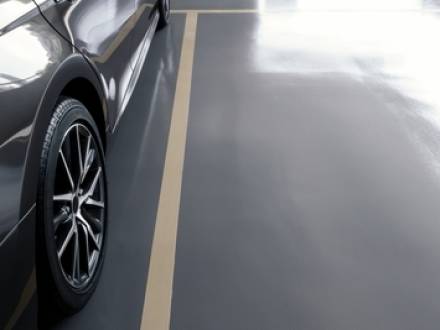Epoxy Flooring vs. Seamless Resin Flooring
 Although epoxy flooring is a type of resin flooring, there are some important differences between the two. Both types of flooring are sometimes known as plastic adhesives due to their ability to bond to plastic, as well as to glass, metal, and concrete. Both epoxy and resin floorings are tough, chemical and heat resistant, and can endure impacts better than most types of floorings.
Although epoxy flooring is a type of resin flooring, there are some important differences between the two. Both types of flooring are sometimes known as plastic adhesives due to their ability to bond to plastic, as well as to glass, metal, and concrete. Both epoxy and resin floorings are tough, chemical and heat resistant, and can endure impacts better than most types of floorings.
While epoxy and resin are often used in industrial applications like warehouses and factories, more and more often, epoxy flooring is being used in residential applications such as garages and basements. Both types of flooring have non-porous surfaces, which protect against wear and tear while also keeping the flooring safe from liquids and chemicals.
If you choose epoxy flooring, you can be sure it will withstand the use it receives while also being safe and attractive. Choosing a Forest Hill, MD epoxy company from Prestige Floor Coating for your epoxy flooring needs ensures your residential, commercial, or industrial floor will be beautiful and durable for many years to come.
What Are the Primary Difference Between Epoxy Flooring and Resin Flooring?
There are several primary differences between epoxy flooring and resin flooring:
- Epoxy flooring is a thermoset material that bonds fully to concrete and is generally harder than other types of resin flooring, like polyurethane.
- Epoxy flooring is generally more durable than resin, protecting floors from impact, spills, and scratches.
- Epoxy usually takes more time to cure than other types of resin flooring.
- Epoxy flooring may be more expensive than resin flooring to replace when damaged, although epoxy flooring is not easily damaged.
- For warehouses and garages that need to be resistant to spills and chemicals, epoxy is the best choice.
- Epoxy floorings come in more colors and styles and can come with a high gloss finish.
- Seamless floorings like polyurethane and polymethyl methacrylate are more elastic than epoxy; PMMA flooring cures faster than polyurethane flooring.
- Seamless resin flooring is applied to concrete and may require a primer to bond the layers. A body coat is installed for thickness, a broadcast or grout coat gives texture, and a topcoat protects the floor.
- Epoxy flooring has a bond coat, then multiple layers of epoxy coating with chips or flakes are added to provide color and texture, and a clear topcoat is added to provide shine.
- Unlike seamless resin flooring, epoxy flooring has a lifetime warranty, offers superior slip resistance when wet, does not require acid etching/washing, and is 800 percent stronger than concrete at 20,000 PSI.
What Our Company Offers Than Many Others Do Not
If you are trying to decide between epoxy floor coating and seamless resin flooring, it can be extremely helpful to speak to a knowledgeable epoxy floor coating specialist from Prestige Floor Coating. We offer the following exceptional benefits:
- Our reputation is impeccable.
- We make our own product.
- We have been in business since 1996.
- Our focus is always on the quality of service and the quality of our epoxy product.
- We offer a vast array of options and colors.
- Our epoxy floorings are guaranteed not to peel and come with a lifetime warranty.
- We have more than 22 years of staff experience and have covered more than 22 million square feet of flooring.
- We are certified by the SSPC Society for Protective Coatings.
- Our professional-grade epoxy floor coatings protect and preserve concrete floors in industrial, commercial, and residential settings.
Contact a Harford County, MD Epoxy Floor Coating Specialist
At Prestige Floor Coating, we manufacture a proprietary epoxy blend that offers you functionality, safety, and aesthetics while preventing slip and falls. Our product is free of volatile organic compounds. You can go to our website for a free estimate via email or over the phone with customer-provided details. Call 443-519-2628 today for a free estimate from a Churchville, MD epoxy flooring professional.




